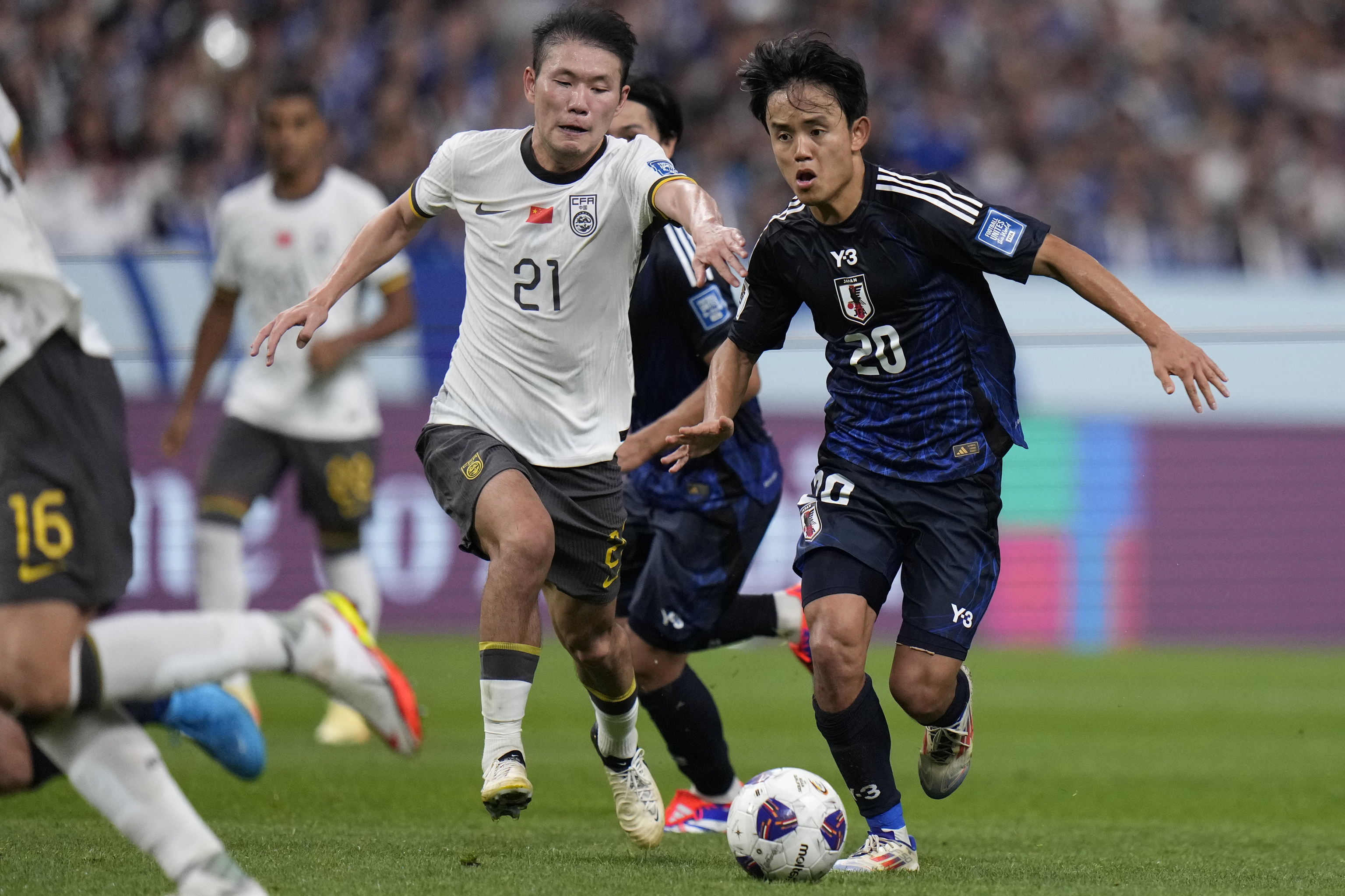He seemed destined to dominate the future right-wing of Real Madrid and to be the club's gateway to the coveted Asian market, but Takefusa Kubo (Kawasaki, 2001) still hasn't crossed the threshold of the Chamartín local dressing room and is drifting further away. For him, tired of waiting since his signing in 2019, and for the Madrid team itself, entrusting the right flank to Rodrygo, Brahim, and Güler. Today, he returns to the Castellana with Real Sociedad, who owns his federative rights and 50% of any future profit from a sale. The other 50% belongs to Madrid, who sold him for six million to the txuri-urdin team and kept that option, now awaiting a substantial income when someone approaches the 60 million release clause.
At 23 years old, Kubo will return to the Bernabéu with the same spirit of revenge and accumulated anger, threatening the team that once called him from Japan and brought him back to Spanish football after leaving Barcelona's youth academy.
And Kubo's story in the capital is one of waiting and rejection. A constant "no" that has shaped the early stages of his career. He landed in the summer of 2019, part of a teenage group seen by the club's leadership as the heirs of the golden era. Alongside Vinicius and Valverde, signed in 2018, were Brahim, Rodrygo, and Kubo, whose signings came in 2019 along with Militao and Mendy.
Of all of them, only Kubo has hit a roadblock, sharing the spotlight of the outcasts with Martin Odegaard. At one point, the Norwegian decided not to wait, and the club sold him to Arsenal for almost 40 million, after a successful spell at Real Sociedad. His journey was swift, and he is now a key player for the gunners.
For Kubo, everything has been different. A unique situation limited from the start by his non-EU passport. The accumulation of foreign players at Madrid, especially Brazilians, forced the club to make choices since 2019, and Rodrygo always outshone Kubo on the right wing. While the Brazilian thrived alongside Vinicius in Madrid's attack, the Japanese player faced challenging seasons at Mallorca, Getafe, and Villarreal. A matter of choices and fate.
So, Madrid won the 2022 Champions League with Rodrygo as the hero in the matches against Chelsea and City, while Kubo was finishing his second loan spell at Mallorca. Previously, he had requested to leave Villarreal midway through the season because Unai Emery did not count on him, ending up at Getafe under José Bordalás. A thorny path that unsettled him, under media pressure in Japan, with the obsession to shine in Europe.
We have only seen him in white during a preseason, in 2019, when he was one of the highlights due to the excitement surrounding his signing. He joined the preseason tour in America with Zidane, played some minutes, and returned to train under Raúl at Castilla, where he featured in some friendlies with Rodrygo. A casting that Rodrygo ultimately won, accepting to play several official matches with the reserve team.
The Japanese player, meanwhile, watched the elite eagerly. "He was stubborn. He had a strong personality and clear decisions," sources consulted at Valdebebas recalled. "I was very stressed in every training session because I wanted to prove my worth," he admitted in an interview a few months ago.
He never made his official debut for Madrid as he was loaned to Mallorca just before that season started. A decision the club saw as beneficial for his development, but perhaps it came too soon, and the spotlight, away from the Bernabéu, dimmed. He never played for Madrid again. The pandemic in 2020, the Olympics in 2021, and his definitive signing for Real in 2022 prevented it.
Delays in Naturalization
In that deal, Madrid retained a preferential option to bring him back and 50% of any future profit from a sale in exchange for six million. He remained popular at Valdebebas, but delays in the naturalization of Militao, Rodrygo, and Vinicius prolonged everything. Three years later, everything seems to have changed. Kubo renewed with Real until 2029, keeping the release clause at 60 million, hinting at a potential future sale.
Madrid has room for non-EU players, with the Brazilians already naturalized, but the new young talent is named Güler, and Kubo's name is seen more as a source of income than on the back of the jersey, waiting at Valdebebas for that definitive leap in the Asian talent's career. Today, in the Copa del Rey semifinal return leg, another test awaits.
